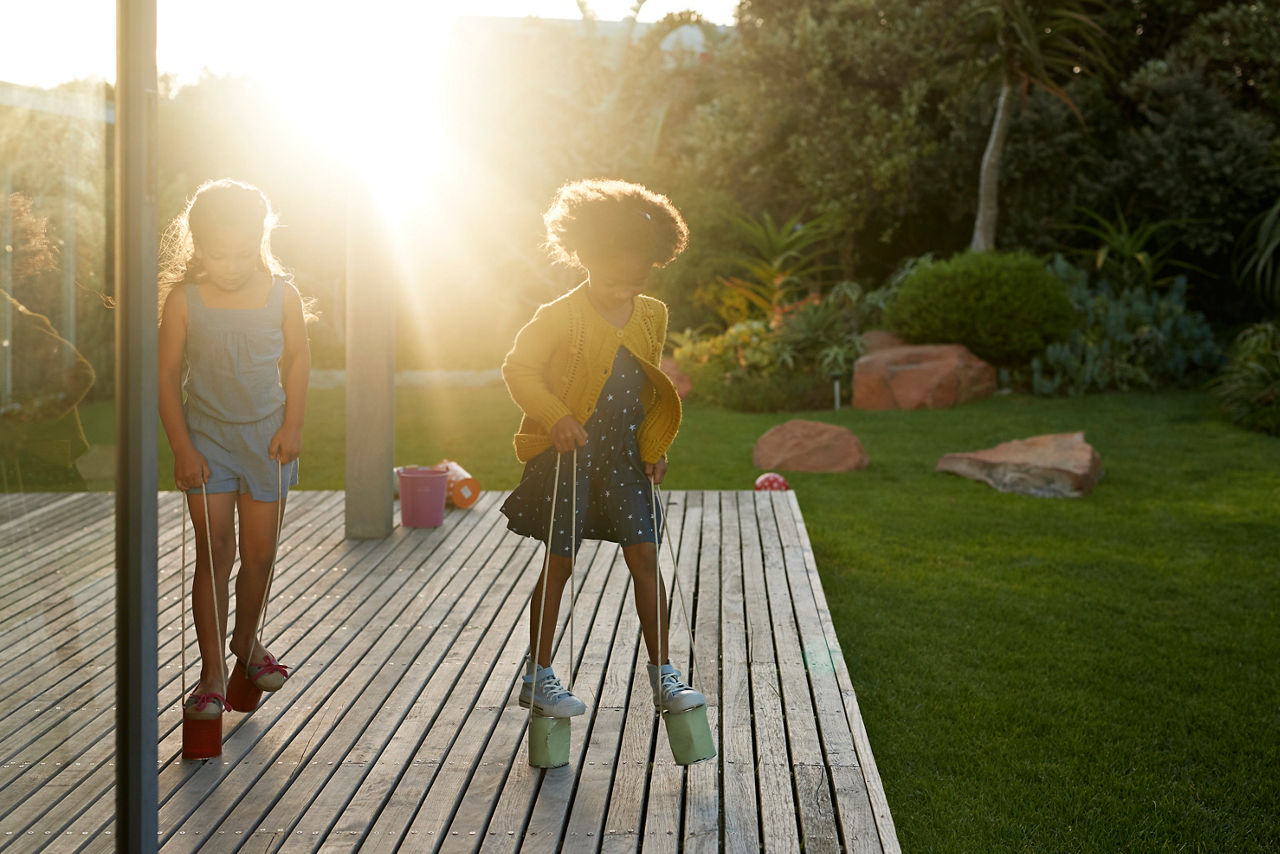Breastmilk is the best for babies. The World Health Organisation recommends exclusive breastfeeding for the first six months of life. Unnecessary introduction of bottle feeding or other food and drinks will have a negative impact on breastfeeding. After six months of age, infants should receive age-appropriate foods while breastfeeding continues for up to two years of age or beyond. Consult your doctor before deciding to use infant formula or if you have difficulty breastfeeding.
WHAT IF MY CHILD IS LACKING VITAMIN D?
Vitamin D comes from the sunshine and is important for the healthy development of the child. Yet due to the Coronavirus outbreak and varying degrees of self-isolation, children are less exposed to the sun.

If you can, go out for short intervals
Generally speaking, it is best to spend some time outdoors in the sunshine (e.g. at your garden or balcony or just heading out depending on MOH guidelines) at least two to three times a week, allowing sunlight on the face, arms and hands of your little one for 5 to 15 minutes.
Open the curtains
During your time indoors, open the curtains and windows to allow sunlight to flood your house and let the fresh air in. Be aware that Vitamin D is made in the skin by the UV-B light. This light does not travel through glass, but requires direct exposure.


Feed your child with Vitamin D rich food
You can feed them foods naturally rich in Vitamin D, such as salmon, sardines, tuna, eggs etc. In addition, look for foods fortified with Vitamin D, like some dairy products, soy or formula milk and cereals. Daily supplementation with vitamin D is generally recommended. If you’re concerned with your child’s vitamin D intake, speak to your doctor or a healthcare professional.
A healthy diet and lifestyle, proper sleeping and regular exercise is the best way to stay healthy. If you have any questions about baby nutrition, please contact our careline at 1800 266 9988.

Connect with our team of experts
We provide advice and support for you on your parenthood journey


